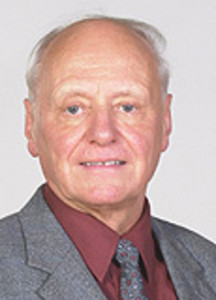
Students from the German Studienstiftung (a public foundation sponsoring outstanding students), organized a workshop on “Rethinking Economics”. It took me back to my past, not only home, but also back to my first years as a student of economics. It is in these years that intellectual creativity is channeled, held back, and then needs events like this to be released again.

Egbert Dierker
I was reminded of my first undergraduate microeconomics class, Vienna in 1997. Egbert Dierker introduced the textbooks, and, while downplaying Varian, praised Mas-Colell to us unwashed and credulous students. It was only a year after the publication of this masterpiece. As particularistic this first class experience was because of both teacher and book there was just no way to imagine that microclasses could be, or ever had been different. It took me ages before I came closer to an understanding of what had to happen to economics before such classes could be taught. Nobody told us, certainly not Egbert Dierker. This is the thing about math: it does not tell you Who, How, or Why – the stuff you need for a narrative. Math is not a language that helps you make sense of your experience of getting into it. As much as mathematics is a self-contained practice, as little it provides a self-reflective language.
Students must have shared a similar experience. It was just so marvelous to see how much creative energies were released in our discussions after seeing a blink of the Who, How, and Why. I told my usual story about how it happened that economists became attracted by mathematics (and why mathematicians were attracted by economics), and that hardly any economist does the same thing as what is taught in textbooks (though modeling is still the imperative). Stories about how people ended up in economics helps if one self is wondering how one ended up shifting curve. It was just a blink of context, but enough to open some eyes, I felt and was told. Alan Kirman and Rob Johnson and a couple of others have told their stories that differ from the textbooks (post-Keynesian, above all, you guessed it). Though the workshop was planned prior to the INET Berlin conference, INET sponsored this event, and Jia from the Young Scholar Initiative was present. The event helped maintain the spirit among the YSI Berlin.
The workshop resulted, though not in full consensus, in an open letter, the “Tübinger Brief” – yes, one more! I always felt that students’ voices weigh more than complaints from minority groups in economics. I have my doubts about most heterodox critiques – its history is full of cranks, ironies, and ignorance (thanks to post-Keynesians, you guessed it). If I hear complaints about math, I tend to think they do not really mean it, or are too cowardly to move to another discipline. But I cannot say the same about students. There are no particular interests or dogmas but only a struggle in intellectually coming of age. And it is in this struggle that they need support. The strongest argument in the Tübinger Brief is thus: „We oppose to the widespread opinion that students do neither have the interest nor the methodological abilities to deal with [foundational issues] of economics”. That is, students feel to be discouraged to think, and, as a result, feel rather indoctrinated than educated. They feel deprived of the means of making sense of what they learn. And this is what growing up successfully means: having the means of making sense of what happens to oneself. Then students have the chance to acquire not only intellectual skill, but also intellectual autonomy.
I think history can do this, as history is the basic color of all forms of context (philosophy, trust me, cannot do the same with mere concepts!). Thus, even if I tend to count out economists from the audience of the history of economics, I certainly count students of economics in. And: It is also true that students need, next to the primary sources, better history of economics textbooks (guess who is planning to write one). It’s a reform of teaching that should be the aim of anyone who envisions new ways of economic thinking. INET’s board recently decided in London that the Young Scholar Initiative will be part of its future cornerstone. Great. It helps un-building the walls that I noticed in one of my previous posts. In creating the YSI community, I invite everyone to join their Facebook group and follow the activities such as the virtual visits – the low-budget YSI version of the 30 ways to be an economist, as it were. They even brought me to comment, for my very first time, on “the crisis” – oops!


